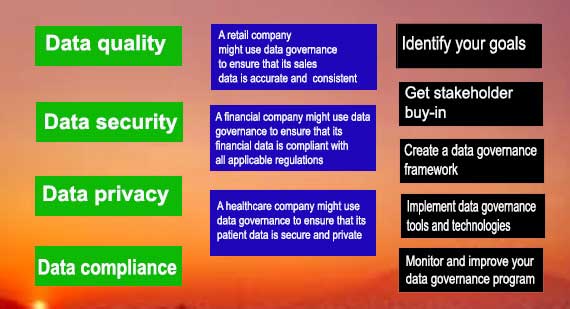
How Business Intelligence Software Improves Corporate Governance
In today’s fast-paced and ever-changing business landscape, corporate governance has become a crucial aspect of any organization’s success. Effective governance ensures that companies are managed in a responsible and transparent manner, with a focus on long-term sustainability and accountability. One key tool that has emerged to support corporate governance is Business Intelligence (BI) software. In this article, we will explore how BI software improves corporate governance and provides organizations with a competitive edge.
Introduction to Business Intelligence Software
Business Intelligence software is a set of tools and technologies that enable organizations to collect, analyze, and interpret large amounts of data from various sources. BI software helps companies to gain insights into their operations, identify areas of improvement, and make informed decisions. By providing a unified view of the organization, BI software enables stakeholders to access relevant information in real-time, facilitating data-driven decision-making.
The Role of Corporate Governance
Corporate governance refers to the system of rules, practices, and processes by which a company is directed and controlled. It involves the relationships among a company’s management, board of directors, shareholders, and other stakeholders. Effective corporate governance ensures that companies are managed in a responsible and transparent manner, with a focus on long-term sustainability and accountability.
Link between Business Intelligence and Corporate Governance
Business Intelligence software plays a significant role in improving corporate governance by providing organizations with the necessary tools and insights to make informed decisions. BI software helps companies to:
- Monitor and analyze performance: BI software enables organizations to track their performance in real-time, identifying areas of improvement and opportunities for growth.
- Identify risks and opportunities: By analyzing large amounts of data, BI software helps companies to identify potential risks and opportunities, enabling them to take proactive measures to mitigate risks and capitalize on opportunities.
- Improve transparency and accountability: BI software provides stakeholders with access to relevant information, promoting transparency and accountability throughout the organization.
- Enhance decision-making: By providing insights into the organization’s operations, BI software enables stakeholders to make informed decisions, reducing the risk of poor decision-making.
Benefits of Business Intelligence Software in Corporate Governance
The use of Business Intelligence software in corporate governance offers numerous benefits, including:
- Improved decision-making: BI software provides stakeholders with access to relevant information, enabling them to make informed decisions.
- Enhanced transparency and accountability: BI software promotes transparency and accountability throughout the organization, reducing the risk of fraud and mismanagement.
- Better risk management: By identifying potential risks and opportunities, BI software enables companies to take proactive measures to mitigate risks and capitalize on opportunities.
- Increased efficiency: BI software automates many manual processes, freeing up resources for more strategic activities.
- Improved compliance: BI software helps companies to comply with regulatory requirements, reducing the risk of non-compliance and associated penalties.
Case Study: Implementing Business Intelligence Software in a Large Corporation
A large corporation in the financial services sector implemented BI software to improve its corporate governance. The company had a complex organizational structure, with multiple business units and subsidiaries. The BI software was used to:
- Integrate data from multiple sources: The company used BI software to integrate data from various sources, including financial systems, customer relationship management systems, and operational systems.
- Develop dashboards and reports: The company developed dashboards and reports to provide stakeholders with access to relevant information, including financial performance, customer satisfaction, and operational efficiency.
- Analyze data and identify trends: The company used BI software to analyze large amounts of data, identifying trends and patterns that informed strategic decisions.
- Improve transparency and accountability: The company used BI software to promote transparency and accountability throughout the organization, reducing the risk of fraud and mismanagement.
The implementation of BI software had a significant impact on the company’s corporate governance, including:
- Improved decision-making: The company made more informed decisions, based on accurate and timely information.
- Enhanced transparency and accountability: The company promoted transparency and accountability throughout the organization, reducing the risk of fraud and mismanagement.
- Better risk management: The company identified potential risks and opportunities, taking proactive measures to mitigate risks and capitalize on opportunities.
Conclusion
Business Intelligence software plays a critical role in improving corporate governance by providing organizations with the necessary tools and insights to make informed decisions. By monitoring and analyzing performance, identifying risks and opportunities, improving transparency and accountability, and enhancing decision-making, BI software enables companies to achieve long-term sustainability and accountability. As the business landscape continues to evolve, the use of BI software will become increasingly important for companies seeking to improve their corporate governance and stay ahead of the competition.
Recommendations
Based on the benefits and case study outlined above, we recommend that companies consider implementing BI software to improve their corporate governance. The following steps can be taken:
- Assess current systems and processes: Companies should assess their current systems and processes to identify areas where BI software can add value.
- Define requirements: Companies should define their requirements for BI software, including the types of data to be analyzed, the frequency of reporting, and the level of security required.
- Select a vendor: Companies should select a vendor that meets their requirements and has experience in implementing BI software in similar organizations.
- Implement and train: Companies should implement BI software and provide training to stakeholders to ensure that they can use the software effectively.
By following these steps and implementing BI software, companies can improve their corporate governance, make more informed decisions, and achieve long-term sustainability and accountability.
Closure
Thus, we hope this article has provided valuable insights into How Business Intelligence Software Improves Corporate Governance. We hope you find this article informative and beneficial. See you in our next article!


